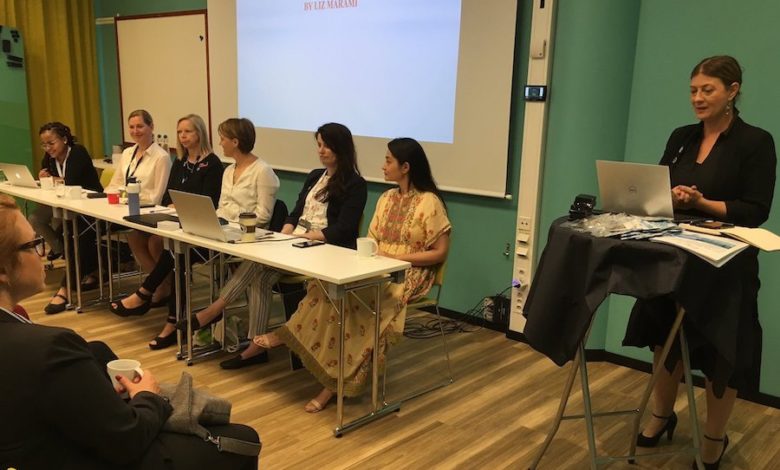IMO sets out to expose gender imbalance to drive change

Shipping’s gender imbalance has been a hot topic at this week’s Nor-Shipping event taking place in Norway with discussions centring on making the issue far more transparent to drive change.
To this end, the International Maritime Organization (IMO) along with WISTA International has launched this week a project to measure how many women actually work in the maritime industry.
Today the IMO held its own event on the sidelines of Nor-Shipping. Entitled ‘Gender mainstreaming and seafaring: A call for collective action’, the seminar heard some hard truths about the state of the gender struggle in shipping.
“People have no idea how often women onboard face sexual harassment,” Dr Cecilia Österman, a senior lecturer at Sweden’s Kalmar Maritime Academy, told delegates.
Delegates were reminded women represent only 2% of the world’s 1.2m seafarers while the level of women in c-suite roles in shipping remains far below the averages of almost all other industries.
The pay gap in shipping remains enormous between men and women. Data for last year from maritime recruitment specialists Spinnaker Global show men earn nearly 44% more than women based on mean average salaries. Men are more likely to receive a bonus too, with that bonus almost 60% higher than those paid to female employees.
Spinnaker’s data from more than 25,000 shore-based maritime industry professionals in 94 countries shows that more than 76% of females working shoreside in shipping have administrative, junior or professional level roles.
Norway has the highest proportion of women operating at executive leadership team level – at 43%.
“We need more women at the top table in IMO,” said Dr Kirsi Tikka, executive vice president at class society ABS. Role models are more important than mentors, Tikka argued at today’s IMO gathering.
Last year consultants McKinsey published a much-read report on the bonuses of having a diverse workforce. Highlights from the report included the fact that companies in the top-quartile for gender diversity on executive teams were 21% more likely to outperform on profitability and 27% more likely to have superior value creation.
